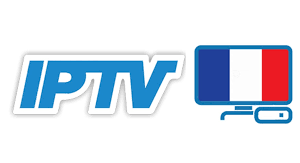In the modern age of digital technology, the way we consume media has rapidly evolved. Gone are the days when people had to rely solely on traditional cable or satellite TV subscriptions to watch their favorite shows, movies, or live events. The rise of the internet has brought with it a wide range of streaming services, and one of the most popular technologies in this area is IPTV. But what exactly is IPTV, and why has it become such a game-changer in the television industry? Let’s dive in.
What is IPTV?
IPTV stands for Internet Protocol Television. Unlike traditional television that uses cable or satellite signals, IPTV delivers TV content over the internet. Instead of using traditional broadcast methods, IPTV streams the content in real-time through internet protocol (IP) networks, allowing viewers to watch content on demand, live TV, or recorded broadcasts. This shift in delivery method allows for a far more versatile and personalized viewing experience.
In essence, IPTV transforms the TV-watching experience into one more aligned with how we consume other digital content, such as YouTube videos or Netflix series. It allows users to choose what they want to watch and when they want to watch it, breaking free from the rigid schedules of traditional TV networks.
How Does IPTV Work?
IPTV works by converting TV signals into digital packets, which are then transmitted over an internet connection to a user’s device, be it a TV, computer, smartphone, or tablet. The digital content is delivered through a process called streaming, where the content is continuously sent in small data packets over the internet and played in real-time.
There are three main types of IPTV services:
- Live TV: This is similar to traditional broadcast TV, where users can watch live television programs as they happen. IPTV live-streaming is particularly popular for broadcasting live sports events, news, and real-time TV shows.
- Video on Demand (VoD): In this service, users can select and watch a wide range of pre-recorded shows, movies, or documentaries whenever they choose. It’s essentially a library of content available at the viewer’s convenience, similar to platforms like Netflix or Hulu.
- Time-Shifted TV: Time-shifted TV allows users to watch previously broadcasted TV shows after they’ve aired. This feature is useful if you’ve missed a program and want to catch up on it later. A common example is the “catch-up” TV service that many IPTV providers offer.
Advantages of IPTV
One of the biggest advantages of IPTV is the level of control and flexibility it provides. Here are some of the key benefits:
- On-Demand Access: Traditional TV requires you to be available at specific times to catch your favorite shows. With IPTV, you can access content at your own convenience, choosing what to watch and when.
- Wide Range of Content: IPTV services typically offer a vast selection of content, from live broadcasts to movies and TV shows, often spanning various genres and languages. This diversity is especially appealing to viewers who are looking for international or niche content that traditional cable services may not provide.
- Cost-Effective: IPTV is often more affordable than traditional cable or satellite TV subscriptions. With the ability to tailor content to individual preferences, users can avoid paying for channels they don’t watch.
- Compatibility Across Devices: One of the standout features of IPTV is its compatibility with multiple devices. Whether you’re watching on your smartphone, tablet, computer, or smart TV, IPTV ensures that you can access content anywhere, provided you have an internet connection.
- High-Quality Streaming: IPTV can deliver high-definition (HD) and even 4K quality content, as long as you have a stable internet connection. This means you get crystal-clear visuals and an immersive viewing experience, making IPTV ideal for watching movies, sports, and other high-quality content.
Challenges Facing IPTV
While IPTV is transforming the television landscape, it does come with its own set of challenges:
- Internet Dependency: Since IPTV relies on internet connectivity, a fast and stable connection is crucial for seamless streaming. Poor internet connections can lead to buffering, interruptions, or reduced video quality, which can negatively impact the viewing experience.
- Content Legality: One of the challenges facing IPTV is the legality of the content being streamed. Some IPTV providers may offer pirated or unlicensed content, which can lead to legal issues for both the provider and the user. It’s essential for users to ensure they are subscribing to legitimate and licensed IPTV services.
- Technical Know-How: Setting up and using IPTV services may require some technical knowledge, especially for users unfamiliar with streaming technologies. Although many providers offer easy-to-use apps and interfaces, troubleshooting issues such as buffering or setting up external devices can still be a barrier for some users.



































